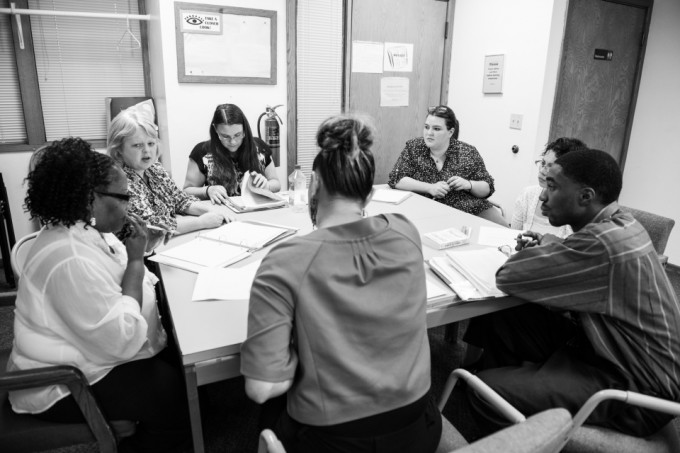
WWEE: a barrier at the brink of poverty
By AdministratorOne in three million women in the US lives in, or on the brink of, poverty.
This amounts to 42 million women who stand to lose their paychecks, jobs, or even housing on the basis of an injury, a broken water heater, or a broken-down car.
According to the Shriver Report’s A Woman’s Nation Pushes Back from the Brink, the impact of this financial insecurity on the nation and the 28 million children who depend on these women is severe. The report calls for solutions to promote women’s financial security and thereby strengthen the economic backbone of the nation.
Julie Kaas, a graduate of Washington Women’s Employment and Education (WWEE), Foundation Beyond Belief’s Q3 Education beneficiary, was featured in the Shriver Report, describing her experience adjusting to life as a single mother of three and re-entering the workforce after 24 years of marriage. “I had the wind knocked out of me,” says Kaas. “What I had planned for my life was gone. I have three teenage sons, a trailer home on five acres to maintain, and not much confidence. I had been out of the workforce for twenty years, although I had home-schooled my boys.”
Although Julie had a two-year degree qualifying her as a preschool teacher, she realised she would need to attend college to provide for her family in the long-term, but did not feel she was college material. After hearing about WWEE, she decided to take a free computer class, which came packaged with classes on self-esteem and employment skills. “The computer class was challenging, foreign and a little scary but the work was pretty straight forward. I am still amazed at all the projects I completed for my portfolio.”
Initially convinced that she didn’t need the additional classes, she soon came to realize their importance: “The afternoon classes were the low steps carefully designed to motivate without overwhelming me – this is where I started rebuilding my self-confidence.”
Now working as a preschool program supervisor and building towards her dream career as an occupational therapist, Julie left the WWEE program with the confidence that she was capable of attending college: “I am in charge of my own happiness and I can be an excellent example for my children. For that I will be forever grateful.”
To learn more about WWEE’s work in helping women to create better lives for themselves and their families, take a look at their website, or keep up with them on Facebook or Twitter.
